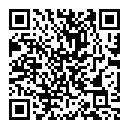

Trends
Collaborations
Meeting Minutes| The Arduous Task of the Compilation of <i>Classics Translation Handbook</i> The Division of Classics
2024-05-06
Sourced from WeChat Official Account: Research in Classics
When translating and introducing the literature of Western classics, achieving the uniformity of various proper names and terminologies is a long-standing problem. It has affected both the reading experience of audiences and the exchanges among the academic community. This is what the sentence "Non-elegant words will not become popular" means.
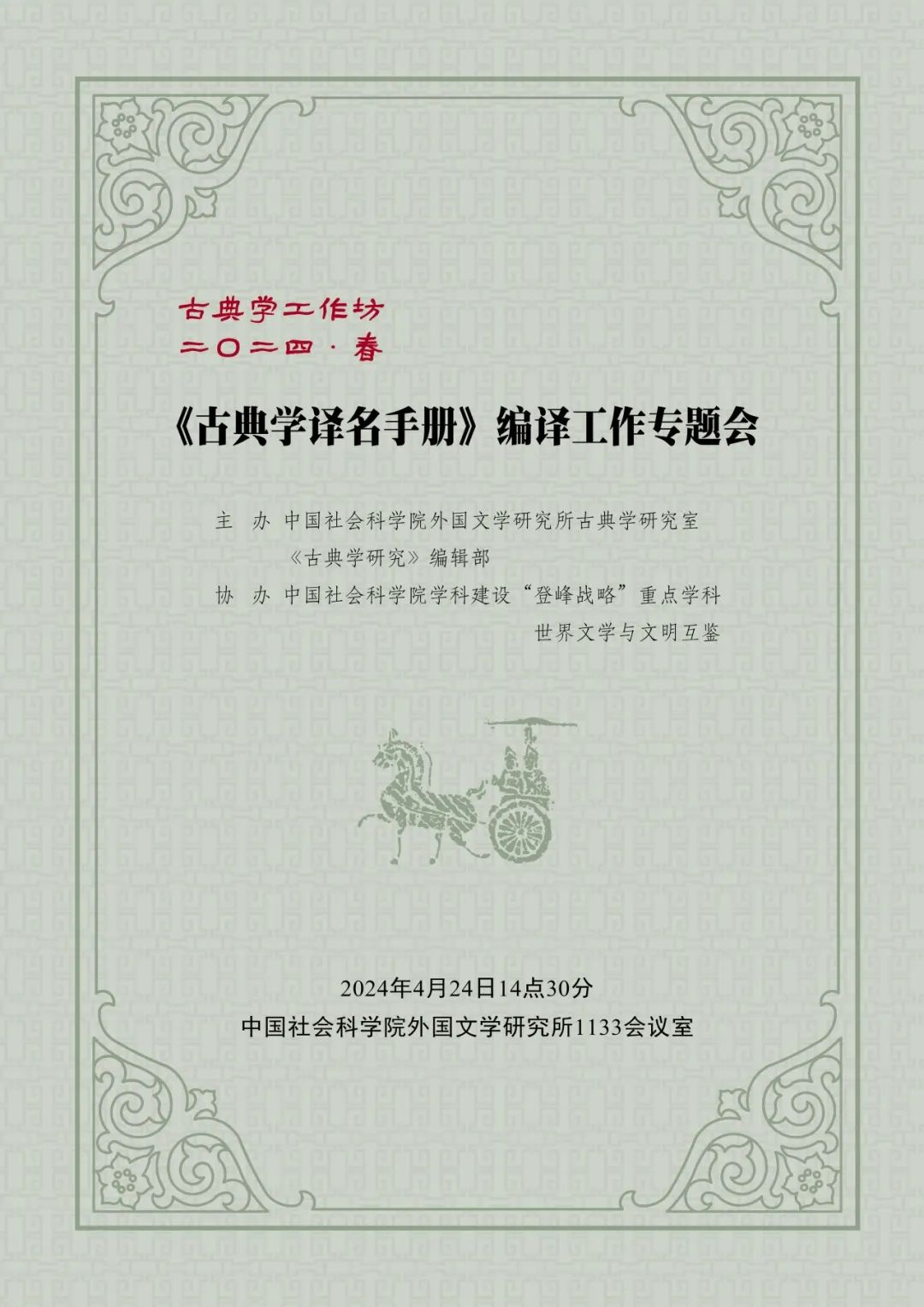
On the afternoon of April 24, 2024, the meeting on the compilation Classics Translation Handbook (hereafter simplified as the Handbook) was held at Meeting Room 1133 of the Institute of Foreign Literature of CASS. This meeting was hosted by the Research Group of Classics of the Institute of Foreign Literature of CASS and the editorial office of Research in Classics, organized by "World Literature and Exchange among Civilizations" as a key discipline of the "Peak Strategy" under CASS' discipline development initiative, and convened by assistant research fellow Gu Zhiying of the Classical Studies Office of the Institute of Foreign Literature of CASS. Sixteen scholars and experts from different universities, social science research institutes and publishing houses participated in the meeting.
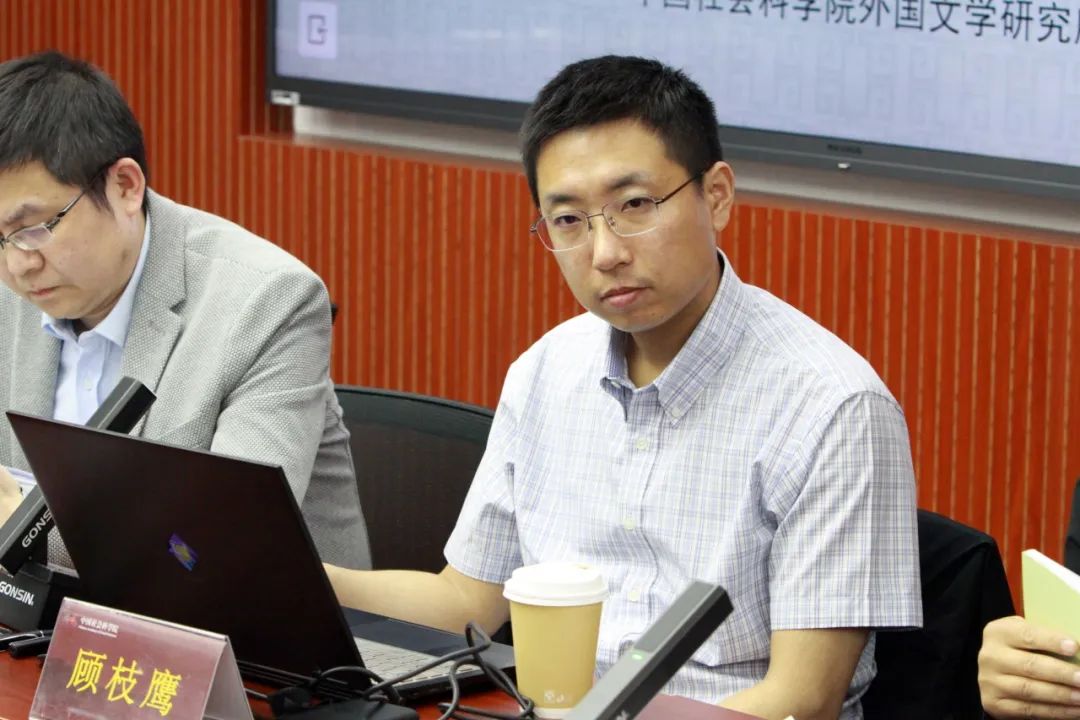
In the beginning, Gu Zhiying made a keynote speech on the compilation process of the Handbook (the First Edition). According to him, the Handbook was based on his translation of Oxford Classical Dictionary, 4th Edition Abbreviations. There are quite a number of inaccurate translations of the names of scholars and literature in the Chinese publications. For example, some scholars falsely translated the "murder accusation of the anonymous defendant" (ἀπαράσημος) into "the anonymous indictment of the murder," "bathing beach" (βαλανεῖον) into "taking a bath," "the foreign consul (πρόξενος/consul) into "executive," and "Muse's temple" (Museum) into "the museum journal". He pointed out that unifying the Chinese translated terms for the names of classical authors and works as well as other terminologies could not really be achieved within a short period of time, nor is the most pressing task in the classical academia now. Therefore, his current work was merely a trial aiming to explore an important and feasible orientation. He hoped that the Handbook could help correct those obviously misleading translations, and provide basic reference for classics researchers and translators as they must be unified among themselves in practice.
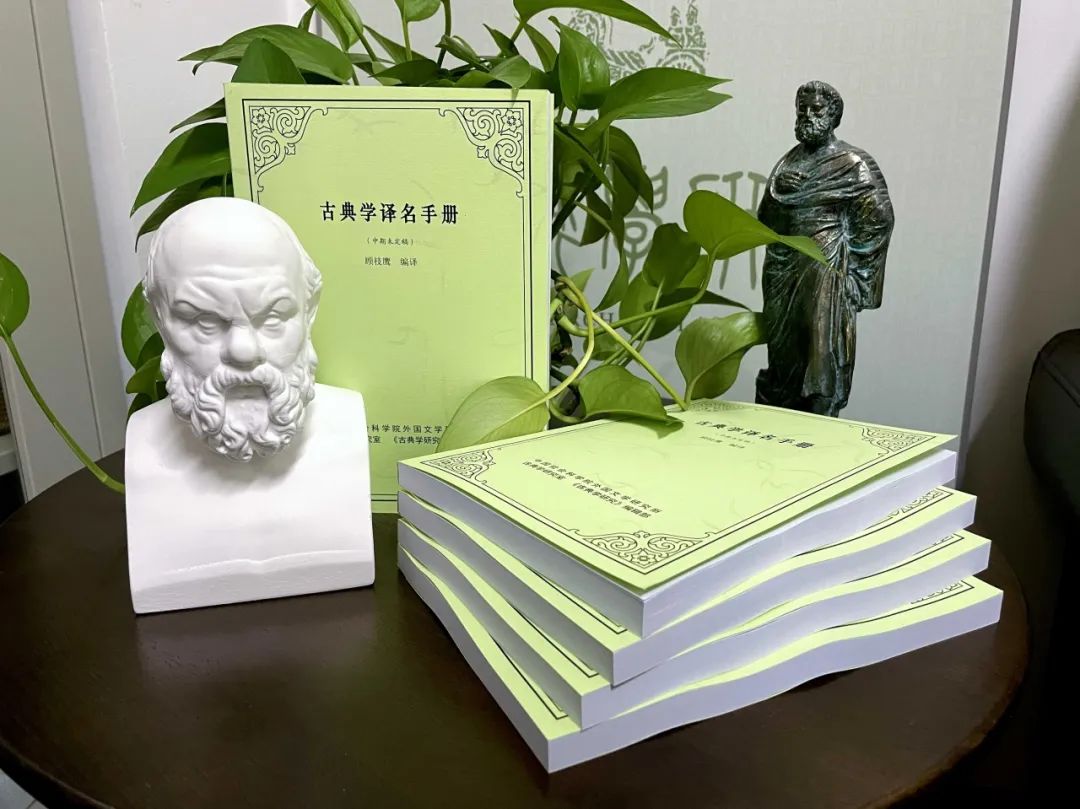
The Classics Translation Handbook
In addition, the Handbook has paid attention to transliteration. Citing the Notice on Further Regulating the Use of Words of Publications issued by the National Press and Publication Administration and Academic Publishing Specification-Translations: CY/T 123-2015 issued by the National Press and Publication Standardization Technical Committee, Gu Zhiying stressed that non-standard practice of mixing with foreign language terms in Chinese wording should be avoided as the essence of transliteration was not make phonetic notation to foreign languages with Chinese characters but make transcriptions with them. Therefore, he laid more emphasis on simple and clear (procedural) transliteration rules than individual transliterated results.
Gu Zhiying also mentioned that he would make further supplements and expansions to the Handbook by referencing such dictionaries as Brill's New Pauly: Dictionary of Greek and Latin Authors and Texts, Brill's New Pauly: Encyclopaedia of the Ancient World and Brill's Ancient Greek and English Dictionary.
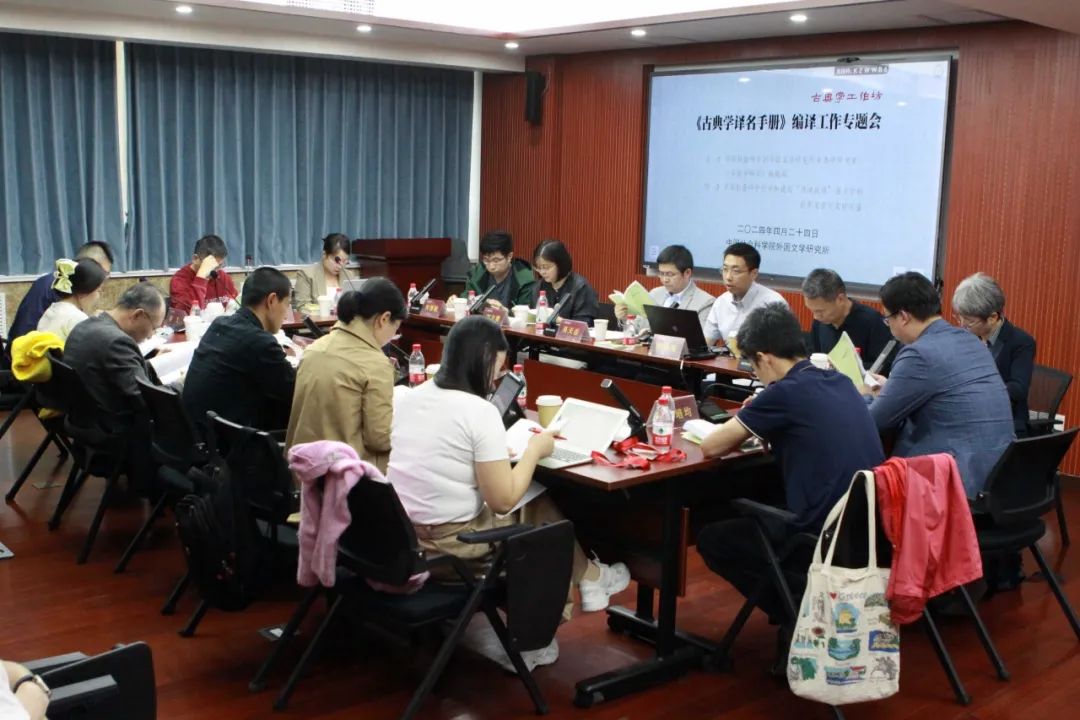
The meeting site
After the keynote speech, attendees had a heated discussion about the Handbook. The first part of the discussion was hosted by Professor Wu Tianyue of the Centre for Classical and Medieval Studies at Peking University.
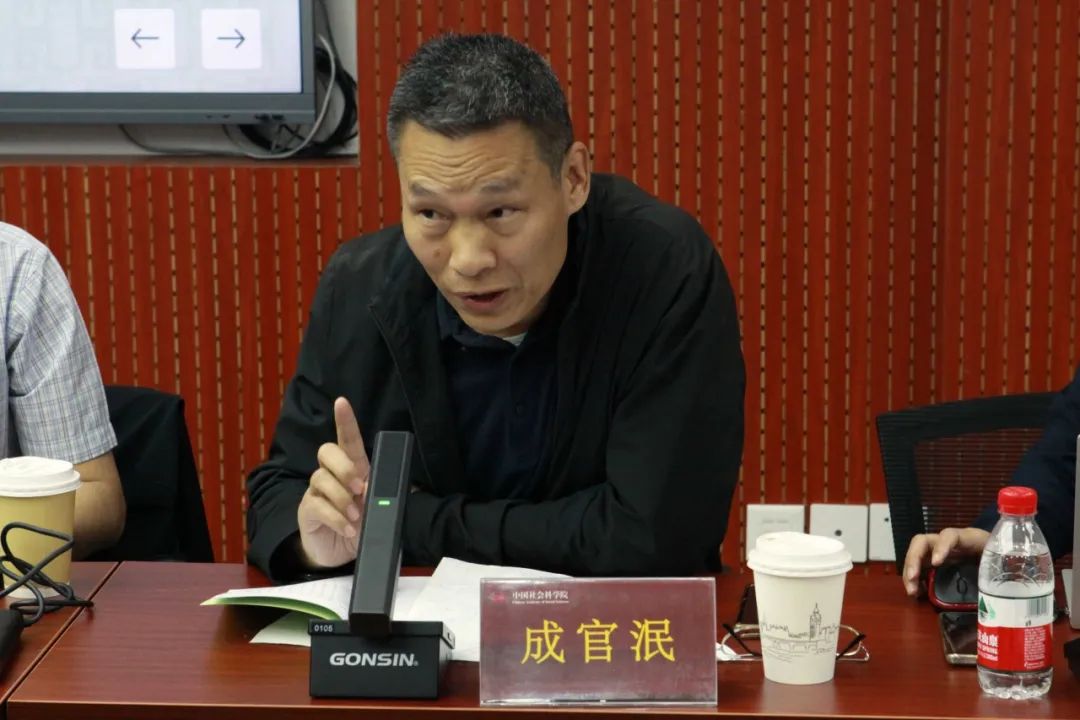
The first speaker was Associate Professor Cheng Guanmin of the Philosophy Teaching and Research Department of the National Academy of Governance. He fully recognized the significance of the Handbook compilation, thinking that it was an important task for setting rules and benefiting successive academic research. He suggested that there should be not only clear rules in the Handbook but also detailed exceptions to preserve many "beautiful exceptions" in the history of translation to avoid the inconvenience caused by mechanical word-for-word translations. Additionally, he made some detailed suggestions for the translation of phoneme, syllables, and proper names.
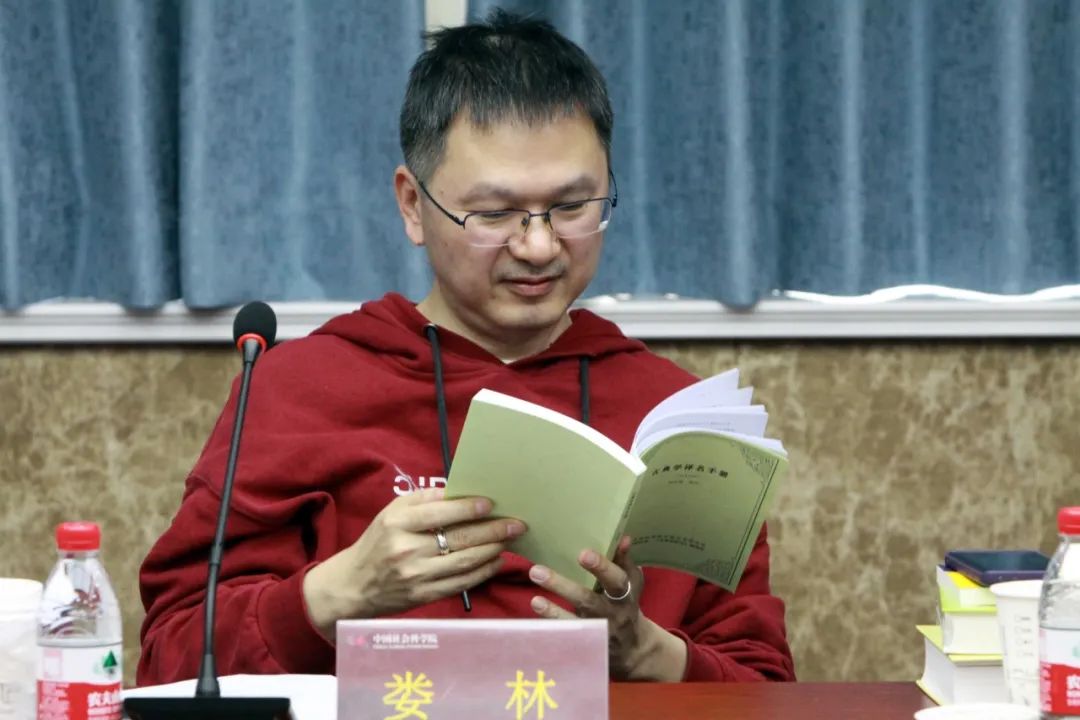
Subsequently, Associate Professor Lou Lin of the Center for Classical Civilization at Renmin University of China gave some suggestions for the improvement of the Handbook according to some concrete examples. First, unifying the standard of collecting literature. At present, a problem of the Handbook is that the literature from some eras was abundant while that from other eras was relatively scarce. So he suggested compilers set a universal standard for "important literature" to avoid the imbalance of the amount of literature collected from different eras. Second, phonetics should not be the only factor for consideration, instead coordination between translated terms and their meanings should also be taken into account during translation.

Associate Professor Wang Shuanghong of the Institute of Philosophy at the Beijing Academy of Social Sciences held that the wording for the translated terms should be simplified under the precondition of strict adherence to the principles of transliteration. He suggested compilers consider translating similar pronunciations with the same Chinese characters to avoid using some uncommon words. Besides, he thought it unnecessary to change completely some conventional translations. For those terms that are hard to achieve unification in their translation, other versions can be noted for the choice of readers.

Lecturer Dai Xiaoguang of the Centre for Classical Civilization at Renmin University of China commented that the Handbook carried distinct features of dictionaries which could not only provide reference for translators but also serve as good bibliography material. He suggested that it could be further categorized according to the historical periods for consulting. Meanwhile, some technological approaches could be adopted for indexing. He held that some conventional ways of translations should be preserved. In some literature, there were both Greek and Latin versions of the terms, yet only the original Greek terms had been kept in the Handbook. Therefore, he suggested that the Latin version of the terms should also be translated.
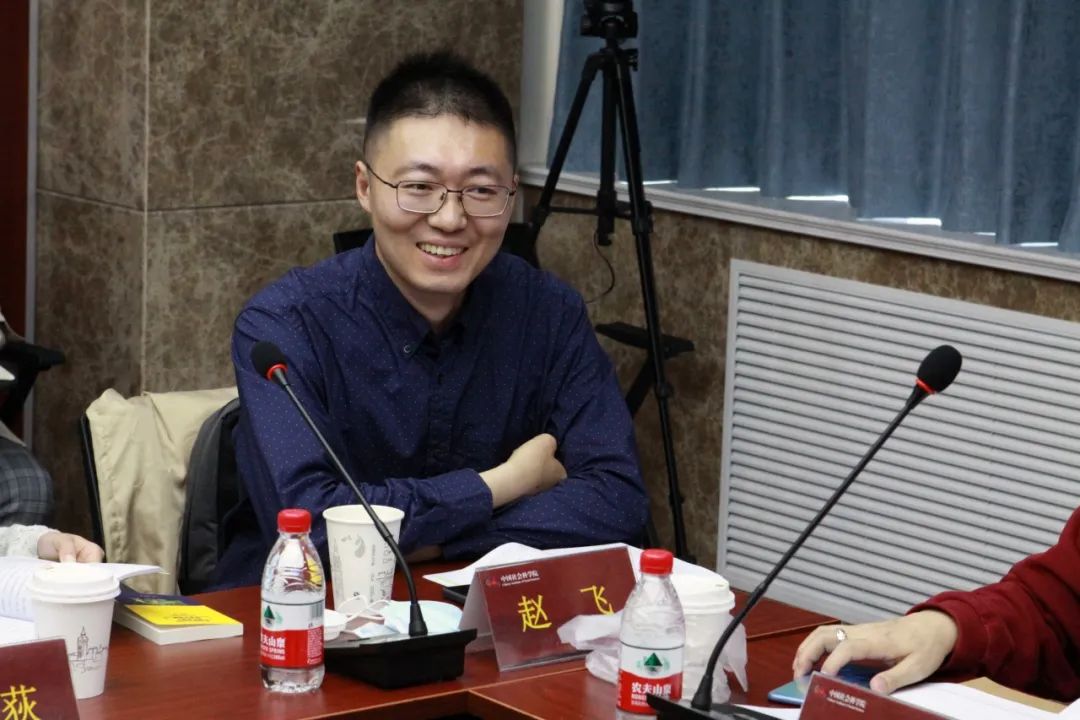
The last speaker in the first part of the discussion was Zhao Fei, editor of the Foreign Languages Editorial Office of the Commercial Press. From his own editing experience, he suggested that notes should be added to the special ancient names and translations in the Handbook. As for the tendency that only stems were translated in the previous classical translation practice, he thought it necessary to make some changes as the inflectional ending in the form of dictionary should be completely preserved in translating classical terms.
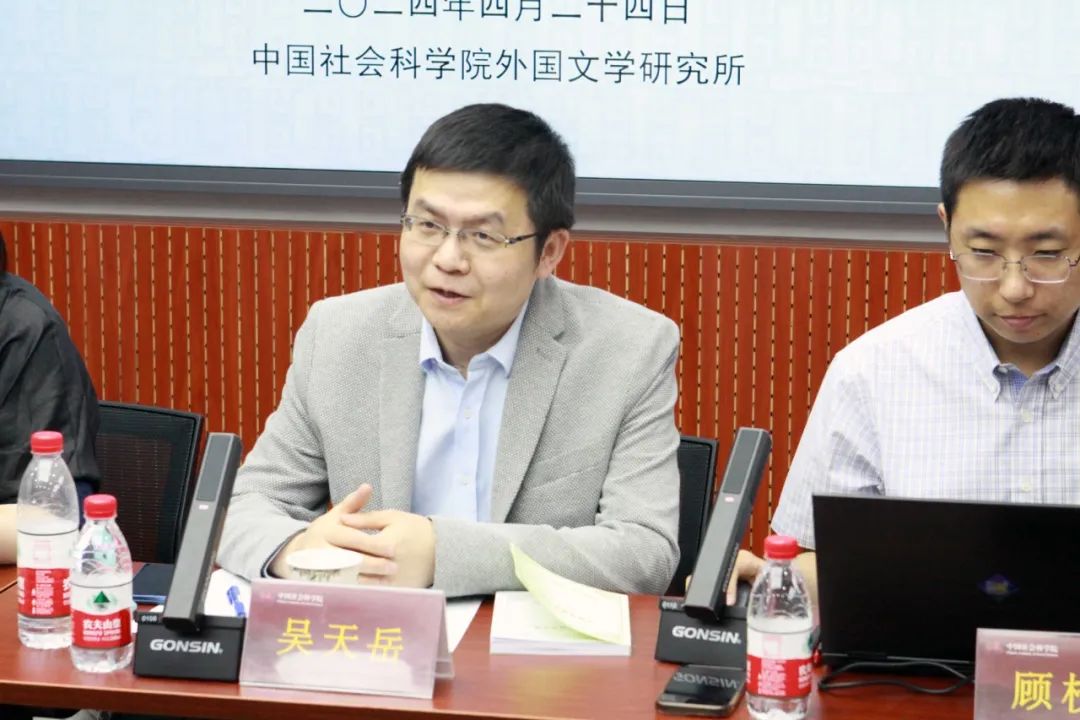
At the conclusion of the first half of the discussion, Professor Wu Tianyue said that compilers should try their best to keep the traditional translated terms for the convenience of ordinary readers. Classics is an interdisciplinary discipline, which involves many fields, so the existing translated terms from other disciplines should be respected during the translation and compilation, even if there were some mistakes. Additionally, the Handbook should not only consist of the phonetic order of the original version, but also that of the Chinese phonetic alphabet (pinyin), or at least indexes. He also pointed out that the choice of literature in the Handbook should not be restricted to the Oxford Dictionary of Classical Literature but include more extensive sources.
Finally, Gu Zhiying first expressed his thanks to all the scholars and experts concerned and then gave a brief response. He confessed that he often got involved in a dilemma in his translating and compiling process. For example, in terms of the choice of Chinese characters in the transliteration list, he considered using more beautiful characters first but some relatively uncommon words were chosen in order to ensure that one tone corresponds to one character. As for the principle of "simplification", his concern was not whether fewer words he should use but the number of words in the transliteration list for better memory. He also said that he was planning to collect more entries in the follow-up compilation of the Handbook.
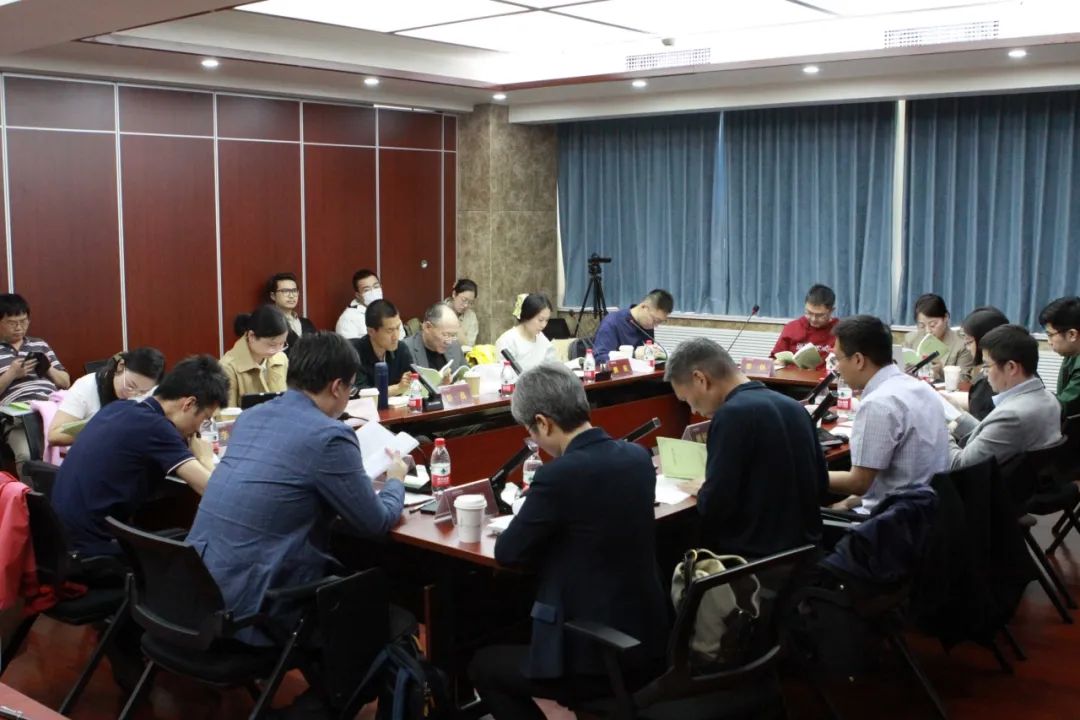
The meeting site
The second half of the discussion was hosted by Professor Peng Lei of the Center for Classical Civilization at Renmin University of China.
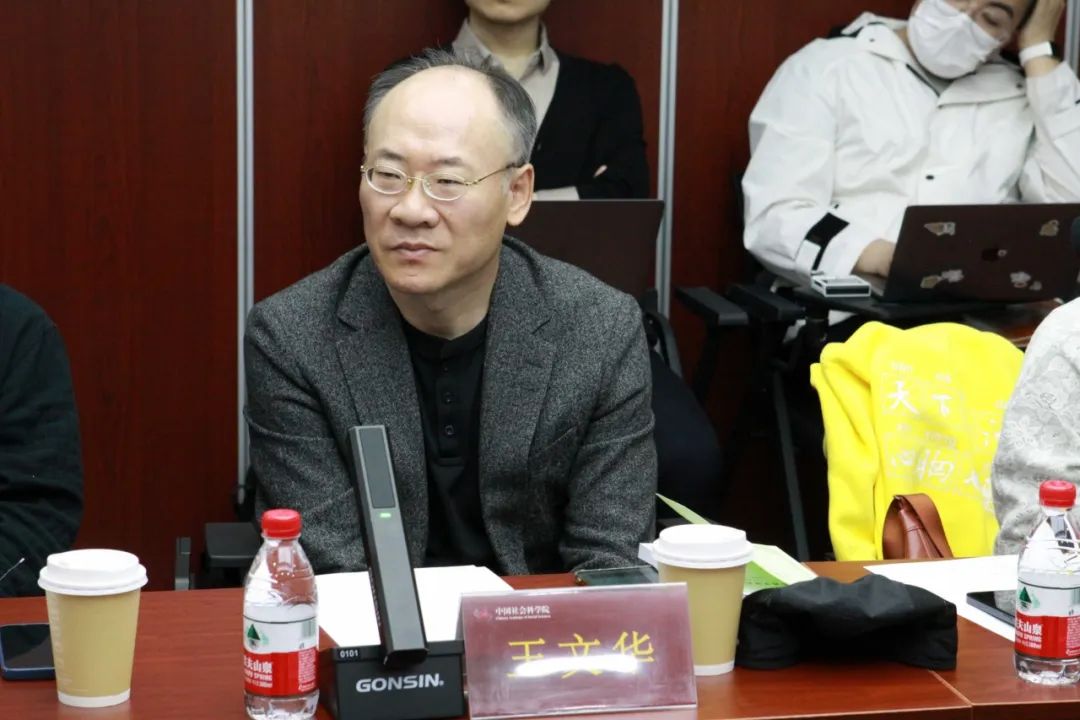
Wang Wenhua
The first speaker was Professor Wang Wenhua of the Department of English at the University of International Relations. He held that the Handbook should be compiled "in layers", or from the strict to loose rules with definitive, descriptive and flexible features to obtain enough acceptability. Besides, a relatively clear standard should be set for the so-called "conventional translated versions" as the Handbook still had room for refining in this respect.
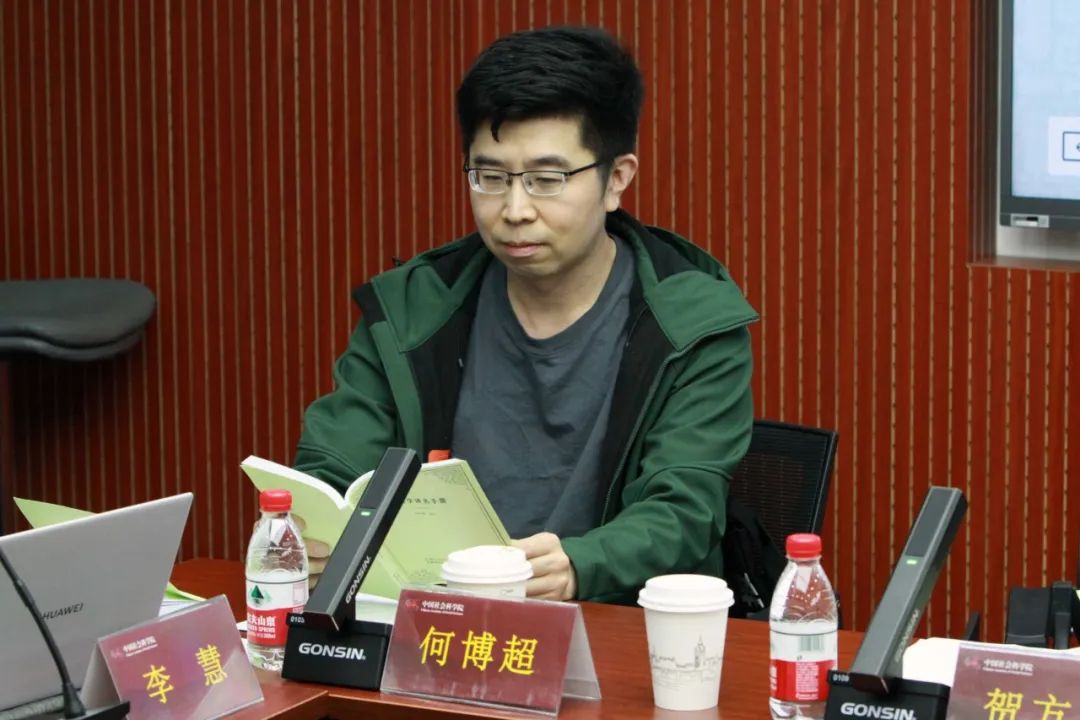
He Bochao
Then Research Fellow He Bochao of the Institute of Philosophy of CASS highly commended the tremendous efforts Gu Zhiying had made in the compilation of the Handbook. Meanwhile, he said that some literature should also be supplemented in the follow-up work, especially those on Orientalism, and some of the choice of translated terms required further consideration. He believed that conventional ways of translation should be preserved during translation and compilation in line with Marcus Cicero's stance of skepticism. He suggested that compilers should indicate both the recommended and prevailing methods of translation, cite the bibliography for the prevailing way of translation, and explain the reasons for the recommended way of translation.
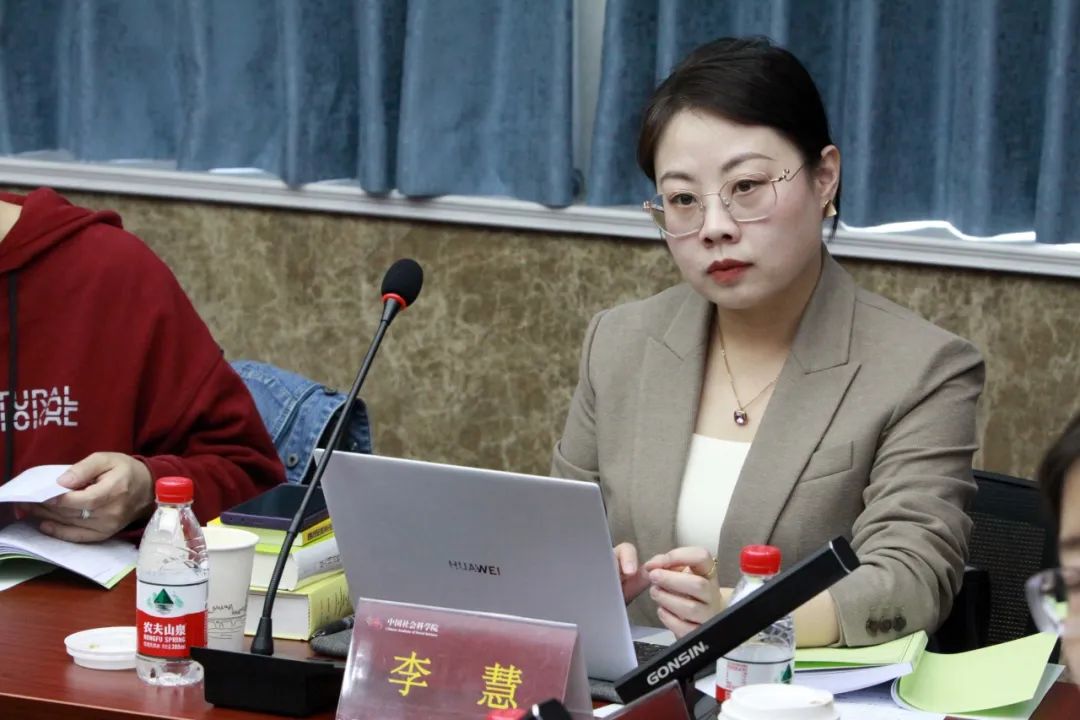
Li Hui
Associate Professor Li Hui of the School of European Languages and Cultures at the Beijing Foreign Studies University highly praised the compilation and translation level of the Handbook. She thought its multilingual treatment was very standardized and that the treatment of the long and difficult sentences were also very appropriate as they were accustomed to the Chinese expressions, showing the consistent high standard of the translator. She proposed building a platform of direct exchange between readers and the translator to help with the follow-up improvement of the Handbook. She also made suggestions for some technical problems, such as adding more abbreviation of special terms, adding an explanation of the transliteration flow chart, etc.
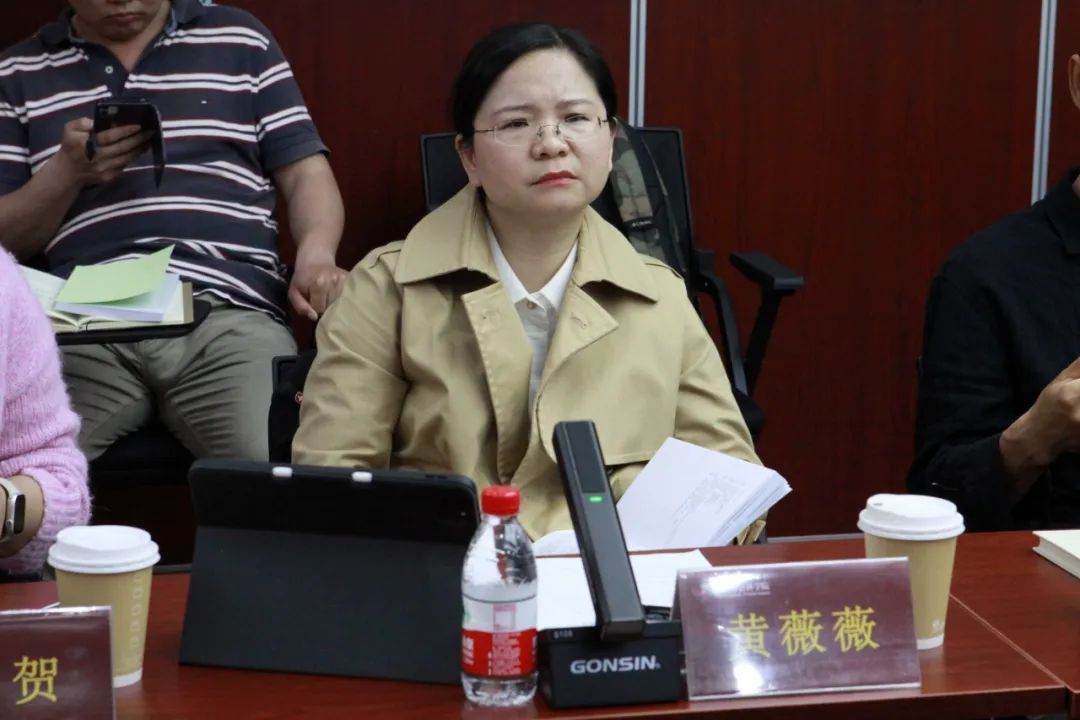
Huang Weiwei
Professor Huang Weiwei of the Center for Greek Studies, Beijing International Studies University suggested that more explanation and sourcing should be given on the translated titles of the classical works and the standards for the upper case and lower case of classical languages and more authoritative explanations should be provided for readers in the foreword of the translator or appendix so as to make sure that the spelling and translation of every piece of literature was well-grounded. She also gave some suggestions for alterations to some specific problems regarding translation.
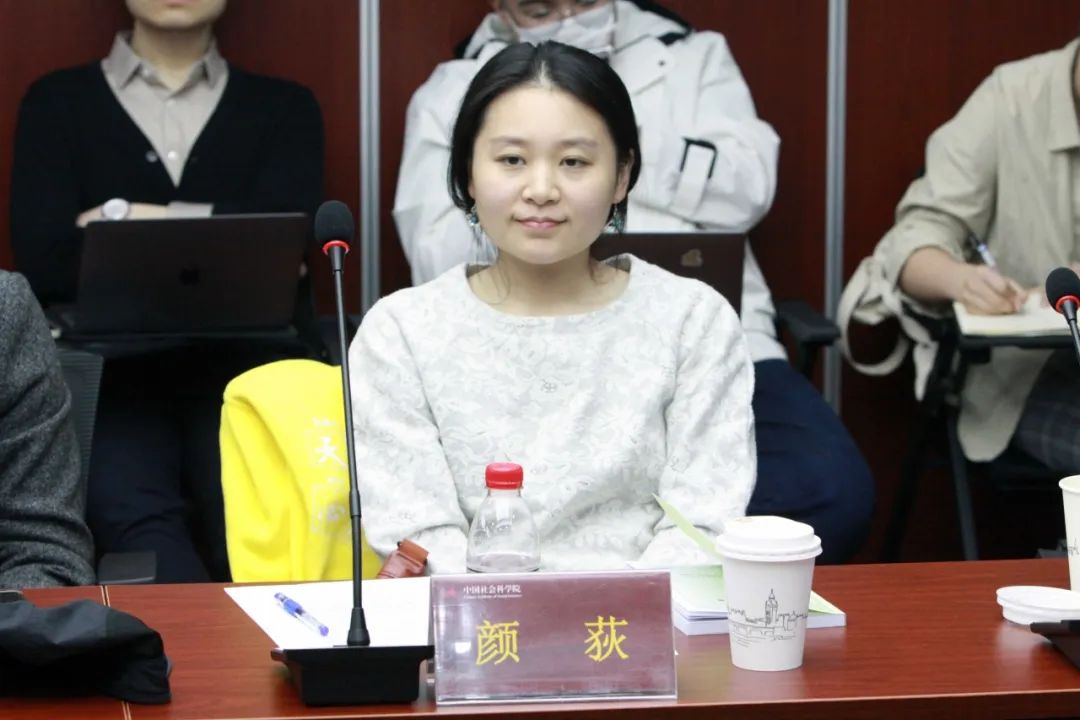
Yan Di
Dr. Yan Di, Assistant Professor of Xinya College, Tsinghua University held that the readers of the Handbook are first professional scholars whose readers are their colleagues and non-professional readers, so the translation and compilation of the Handbook should consider multiple readers. In choosing ways of translation, translators should first consider what terminology could best help readers at different levels in their use and exchanges. Additionally, she proposed listing the first-hand and second-hand literature separately for the convenience of scholars in different fields. She also hoped various names of places, people and mythical characters in classics could all be successively included in the Handbook.
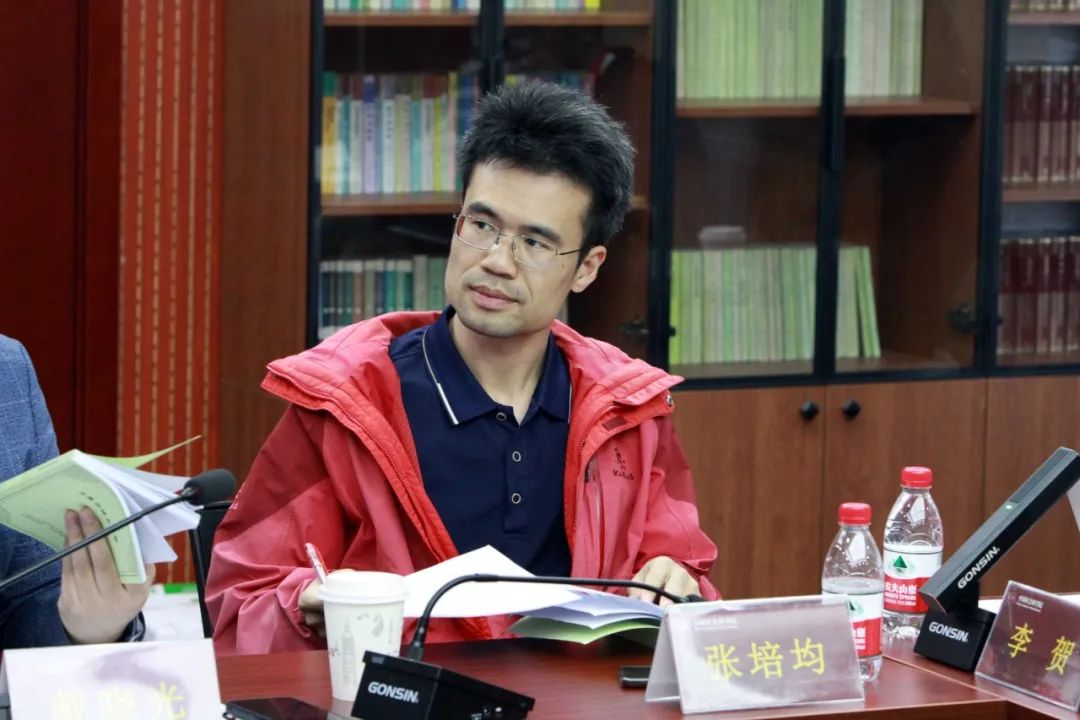
Zhang Peijun
The last speaker was Associate Research Fellow Zhang Peijun of the Classical Studies Office of the Institute of Foreign Literature of CASS. He thought that a small number of words used in the transliteration list was truly not very common, and gave his views on how to improve in this regard. He also pointed out a few omissions in the compilation of the Handbook.
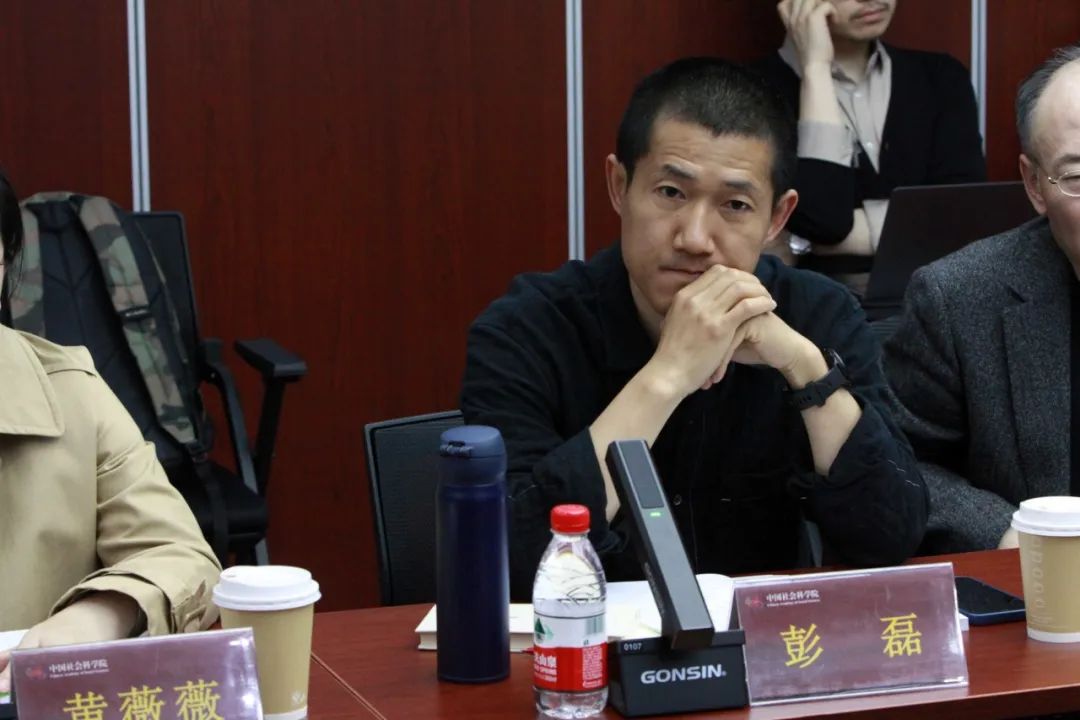
Peng Lei
Professor Peng Lei pointed out in his summary of the second half of the discussion that from the perspective of the publishing house, the "important research literature" from the Oxford Dictionary of Classical Literature should not be encompassed as their "importance" was hard to be defined with a big controversy. He expected that the follow-up work for the Handbook could contain the terms of various kinds of figures, history, geography and currency, making the work a classical translation encyclopedia. Gu Zhiying responded by thanking once again for the suggestions and opinions of the scholars and experts and introduced to them his next plan for compilation.
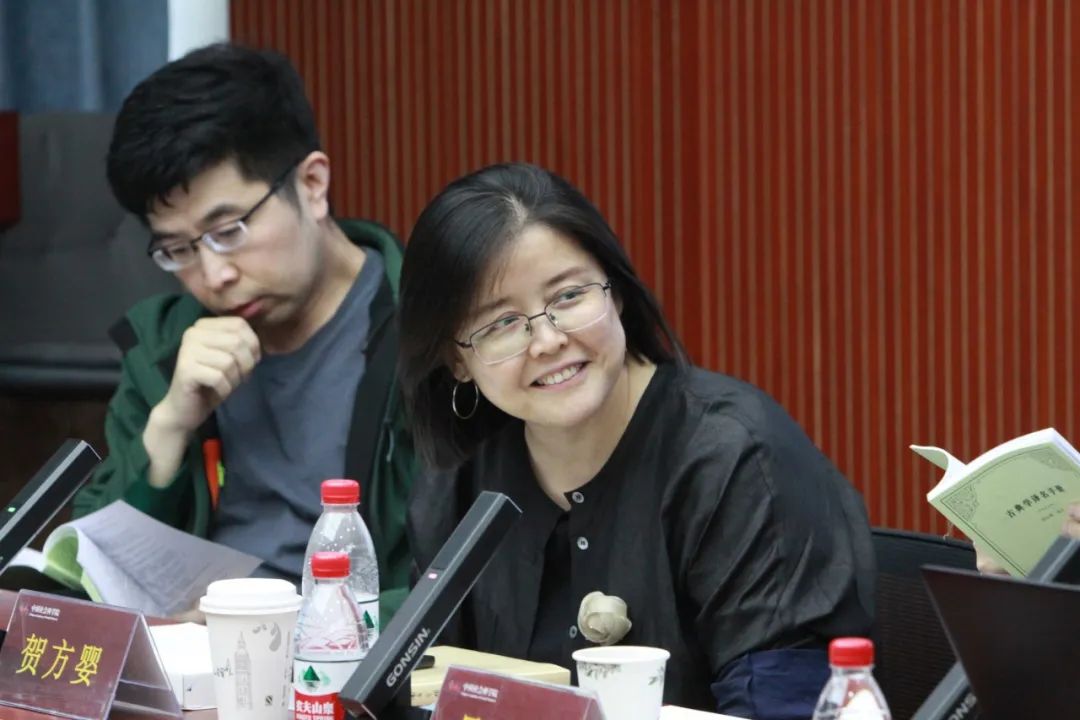
He Fangying
At last, Research Fellow He Fangying of the Division of Classics of the Institute of Foreign Literature of CASS delivered a summary. She pointed out that the compilation and promotion of the Handbook was of very important significance to the building of the classics discipline in the Chinese academic circle, and the building of the academic community of classics. It may take the efforts of one or two generations of scholars to completely unify the classics translated terms and terminology, or even several generations of people to finish the whole work. In this regard, Dr. Gu Zhiying's work is of great significance in academic history and has promoted the compilation work of Mr. Luo Niansheng, the senior Chinese classical scholar of the Institute of Foreign Literature. Although there are still many controversies and shortcomings in the first edition of the Handbook, it has eventually taken an important step forward. In addition, the compilation and translation of the Handbook is also the required editorial work of the journal Research in Classics.
At last, Research Fellow He Fangying expressed her thanks to the guidance of the participating scholars and experts, and said that more seminars on the compilation and translation of the Handbook would be organized in the future. They would also invite scholars and experts across the country to take part in this project, and further help Dr. Gu Zhiying to improve his translation and compilation work.
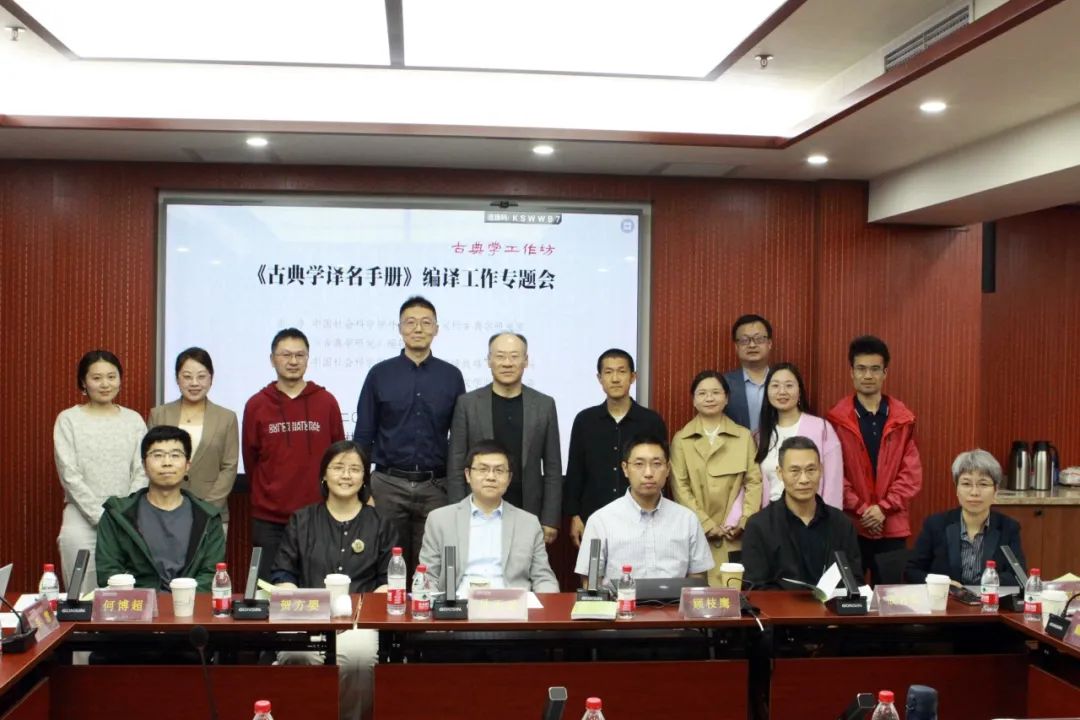
Group Photo of all participants


